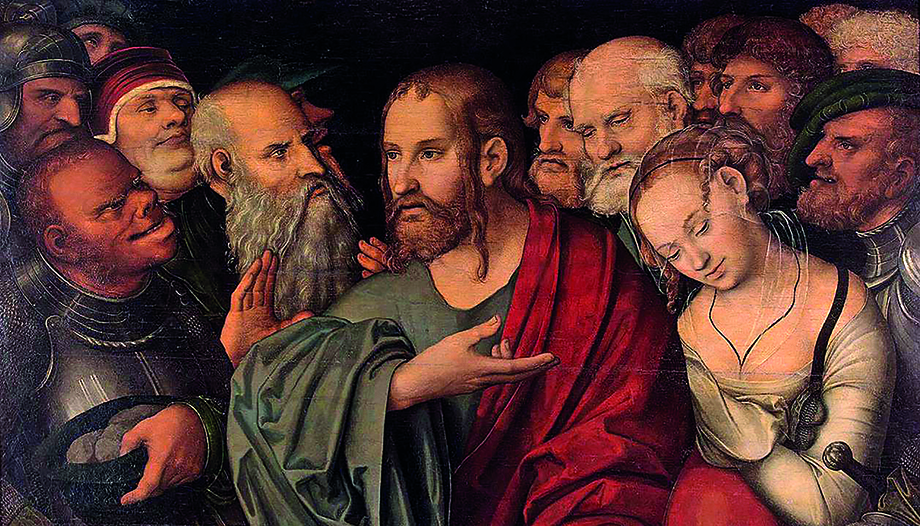Commentary on the Readings for the Fifth Sunday of Lent
The episode of the adulteress is the Gospel passage most commented on by the Fathers of the Church. It is like a narrative synthesis of the core of the Gospel. Isaiah recounts the words of God: "Do not remember what happened in the pastño, | no penséI am in the old; behold, I am doing something new". Jesus invites the adulteress to look no longer to the past but to welcome the new life he gives her. Paul writes to the Philippians that their only purpose is "to win Christ and be found in him". That day, in the temple, that woman won Christ, entered into his life and was found in him.
Taught in the temple "and all the people comeíto him. The scribes and Pharisees, envious of his success, wanted to provoke him to denounce him: to the temple authorities if he denied stoning, to the Roman authorities if he approved it, because capital punishment was exclusive to the occupants. Moreover, if he had ordered the stoning, denying the message of mercy that he was preaching and practicing, he would have lost the favor of the people. To defend himself against these pitfalls, Jesus chooses silence. He bends down to write on the ground. Augustine notices a reference to Jeremiah 17, 13: "SeeñThose who forsake you fail; those who turn away from you are buried in the dust because they have forsaken the Lord, the fountain of living water.". The floor of the temple, however, is not made of earth but paved: the gesture recalls the finger of God engraving on the stone the law on the tablets that he gave to Moses. There is here, then, one who is greater than the law, he is its author, the one who knows its authentic interpretation.
"He who is without sin, let him cast the first stone".. The purpose of the old law, for these stiff-necked people, was to bring them to understand the sin in everyone and to convert. Now Jesus can fulfill that purpose. He who is the only one truly without sin does not condemn the woman and does not cast the first stone. He exchanges forever the old law for the new law of love that he writes on hearts. He rises to look at and speak to the "woman": she is no longer the "adúlter. It is not sin that defines us but the nature with which God created us and the grace that renews us. In biblical language, "woman" is also the bride: the woman has finally found the bridegroom, in her the Church finds Christ. The scribes and Pharisees are going to look inward and face their sin. They are no longer in the woman's sight: none of them condemned her. To sin no more is a promise, a guarantee. From Christ's gaze, from his immense love perceived, from his mercy and trust, the woman's conscience and repentance for sin and the resolution to fall no more, because, there in the midst, she has been "found in Christ".
Homily on the readings for the Fifth Sunday of Lent
The priest Luis Herrera Campo offers its nanomiliaa small one-minute reflection for these readings.








